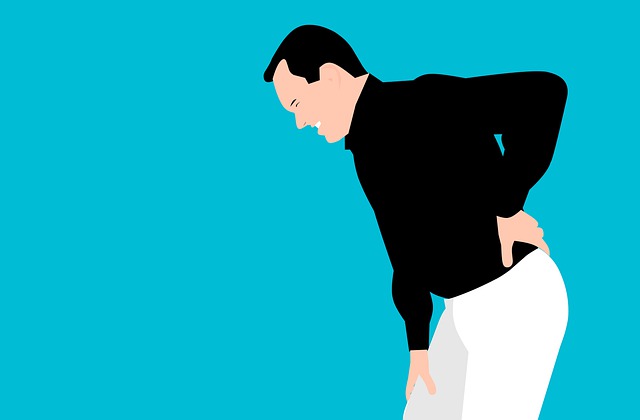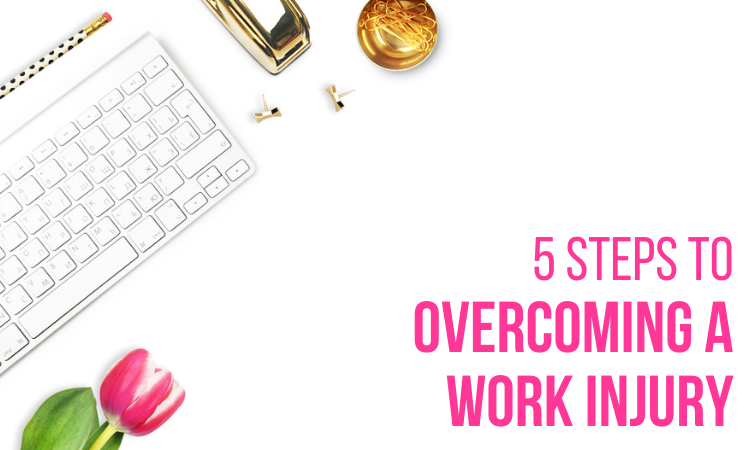You’ve injured yourself at work. Just what steps should you take now? This post details some of the steps that are worth taking after experiencing a work injury.
This is a contributed post. Please refer to my disclosure for more information.

Take time off to recover
Sometimes an injury will be so severe that it will be impossible to work with that injury. In other cases, you may be able to ensure the pain and soldier on – but should you do this? In most cases, no.
When it comes to injuries such as back pain from heavy lifting or wrist pain from typing, the best treatment is often to take a break, otherwise, the injury will likely get worse. Some strain injuries may require you to simply rest for a while. Others may require investing in some physiotherapy.
When it comes to more severe injuries, it could be essential that you take time off. A small fracture that could take weeks to heal can turn into a permanent injury if you don’t abstain from work. A doctor will be able to tell you exactly how much time off work is needed and which activities you should avoid (common examples include driving and sports).
Seek compensation if eligible
If you work for an employer, you should be entitled to worker’s compensation. You may want to hire injury lawyers to help you fight your case if an employer does not automatically compensate you or does not offer an adequate amount. Such compensation could help you to fund your recovery so that you can still pay bills while not working.
If you’re self-employed, you may not be eligible for compensation, unless your injury was directly someone else’s fault (such as a car accident with a driver who was distracted while travelling to a client). Income protection insurance may also be able to cover you if you have it in place.
Take advantage of other funding
There may be other ways to help fund your recovery that could be worth looking into. Having enough money to live off could allow you to take time off to fully recover, so that you don’t feel you need to return to work too soon.
What other types of funding are available? Some employers may offer paid sick leave alongside compensation. There could also be low interest loans that you can take out or even benefits that you can apply for if you’re going to be in recovery for a long time. Don’t be afraid to also ask friends and family for help.
Ease back into work
It’s important that you don’t return to work too soon while you are still recovering. Listen to your doctor’s advice when it comes to avoiding certain tasks – at first, you may want to take on reduced responsibilities and avoid certain jobs like heavy lifting.
Working from home for a couple weeks may be an option if the commute to work could be a strain. This is likely to be an option with many office jobs, allowing you to continue recovering while working without overexerting yourself physically.
Avoid repeating the same injury
It’s important to take steps to avoid getting injured again. This could include wearing safety equipment when doing certain tasks or carrying out certain safety checks (such as making sure a ladder is fully out before climbing if this was the cause of your injury).
If you work for an employer, you may want to talk to them about possible health and safety improvements if you feel they are not adequate. For example, if you were hit on the head by a falling object while working in a construction site, consider discussing safety measures like adding nets to catch objects. In other cases, protocol may be able to be adopted, such as not placing tools too close to the edge of ledges where they can be easily knocked off. Safety measures like wearing hard hats may already be in place but may not be enough.
Do not continue working for a company that does not want to make changes. A good employer should care about the safety of their employees and injury should be a wake up call that improvements need to be made. Look for another company that has better health and safety measures in place to avoid future injuries.
If you are self-employed or in a managerial position, it may be up to you to introduce health and safety measures. Consider ways in which you can make your work safer to avoid the same injury again, whether it’s outsourcing professionals to do heavy lifting jobs or wearing different footwear to avoid slip injuries.




Ultimately, the 5 steps to overcoming a work injury are not just about physical recovery, but also about promoting a positive and healthy lifestyle. By prioritizing self-care and maintaining healthy habits, individuals can reduce the risk of future injuries and enhance their overall quality of life.
Thank you for sharing. I do things to overcome my disability by reading, walking, going out for a run and going to the gym that gave me strength to improve and get better.